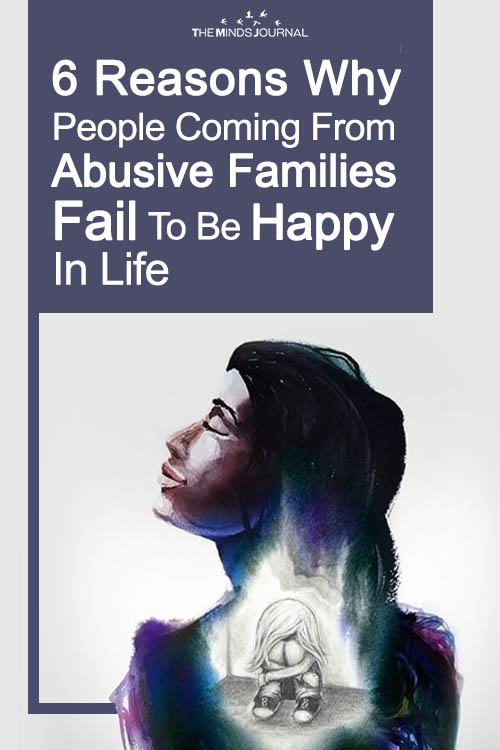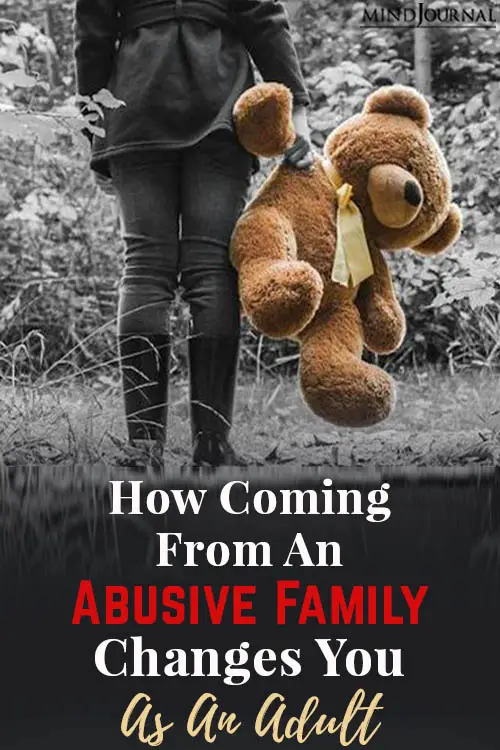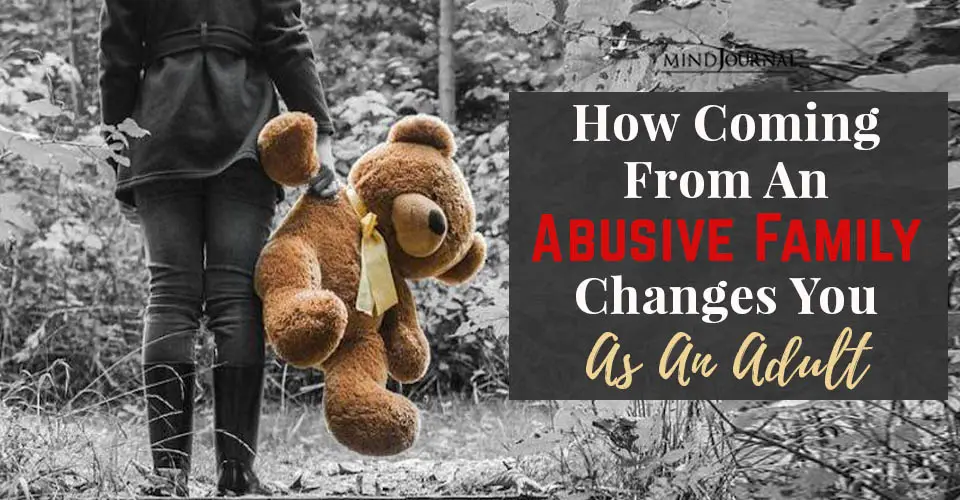The scars left by an abusive family on an individual are deep and lasting resulting in many carrying them throughout their lives. Abuse can be both physical and mental and it can be perpetrated by anyone around you.
While it is hard to deal with abusive friends and partners, the worst is when it comes from your own family as you are completely dependent on them while growing up and it can be very hard to escape their influence even when you become an adult.
Below are the traits of people who’ve been deeply affected by their abusive family making it hard for them to find happiness for most of their lives.
1. They suffer from constant stress and anxiety
Being a part of an abusive family usually leads to people developing anxiety disorders. After spending much of their childhood looking over their shoulders in order to escape as much of the abuse as possible, the anxiety doesn’t get better even when they become adults.
Attacks of anxiety occur even when there are no triggers around them to set them off. They themselves cannot narrow down the cause but the weight of it is always on their shoulders.
These attacks can get so bad that they might have difficulty doing something as simple as breathing. These attacks leave them feeling helpless because they cannot offer any explanation for their occurrence and they never know what will set them off.
Read: 7 Behaviors Common Among Adults Who Went Through Trauma At A Young Age
2. They are unable to build up their self-esteem
After spending many years having their confidence and self-esteem constantly torn down by the people who were supposed to care for them and nurture them, victims of abusive families have a very hard time finding faith in themselves.
Undoing almost decades worth of harsh criticism and insults is definitely much easier said than done and not many are able to heal completely.
As they grow older, this affects all parts of their lives. Without self-confidence, they constantly doubt their own decisions and this often holds them back in both their personal and professional lives.
They’ll think they’re not good enough for something or someone and so they’ll stop trying to achieve their goals. Even when they have to make important decisions, they’ll keep thinking of all the ways they could fail and end up ruining their work simply because of that fear.
Read: Growing Through Trauma: How To Not Let A Bad Childhood Define Your Life
3. They find it very hard to express themselves even to those they care about.
Having had to keep their feelings to themselves for most of their lives, those who’ve had to deal with abusive families usually do not learn how to communicate with the people around them. For them, the concept of discussing a personal problem and finding a solution for it does not even exist. They are much better at bottling up their emotions.
Not only does this make it hard for them to form lasting and close relationships with others outside their families, but this also leaves them unable to speak up when someone is stepping all over them. Without being able to defend themselves, they knowingly or unknowingly become doormats for others to casually step over. They end up being taken advantage of and this only causes them more pain than what they’ve already been through.
4. They keep getting into abusive relationships outside their families
Being used to abuse is a very hard habit to break. Often these people don’t even realize that relationships and families are not actually meant to be so painful.
After having seen abuse and pain all their lives, they don’t have any model for what a happy and stable relationship looks like so they only go towards what they already know.
Unfortunately, this leaves them stuck in a cycle of more and more abusive relationships. Even as they grow older and meet more people, they tend to get into abusive friendships and even go on to find abusive partners.
The pain can sometimes even become an addiction which is even harder to get out of. People who are just as bad as their families find it easy to get their claws into them and use them however they please.
Read: The Impact and Long-Term Effects of Childhood Traumas and Complexes
5. They don’t know how to maintain a proper relationship
In keeping with their habit of being attracted to abusive people outside of their family circle, their lack of knowledge about a healthy and happy relationship combined with their warped view of the world almost always results in them hurting themselves even when they find a kind and compassionate partner.
Since they’re always waiting for the other shoe to drop, they often pre-empt disaster by bringing it on themselves.
In this process, they hurt not only themselves but, more often than not, their partners as well. Usually, they do not mean to but once the damage is done, there is no going back. They’re always waiting for their partner to hurt or leave them and if they suspect even the slightest sign of either of these things, they’ll lash out to save themselves because pain is all they know to expect.
Read: Effects of Growing Up as an Unloved Child and How To Heal
6. They don’t know what to make of their own emotions
Very early in their lives, people who belong to abusive families learn how to keep their emotions at bay. They keep it all in because drawing attention to them equates to welcoming more abuse than they would face otherwise.
As they grow older, this habit of hiding things away only gets worse because they’ve become so used to it that they can’t really understand what they’re feeling.
Besides being unable to express their true feelings, they themselves often cannot understand their own emotions.
After wearing a mask for most of their formative years, they’ve become so good at pretending that they can’t tell the difference between their pretense and what they’re actually going through.
Therefore they’re unable to deal with any emotional issues that might crop up because they don’t even know that they have problems in the first place.
Related video:
The Minds Journal Articles Volume -1 is Copyright Protected vide Regd.# L-103222/2021










Leave a Reply
You must be logged in to post a comment.